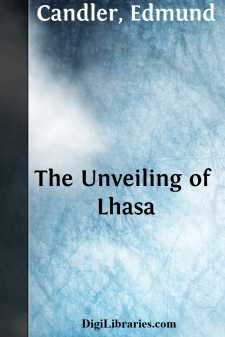Categories
- Antiques & Collectibles 13
- Architecture 36
- Art 48
- Bibles 22
- Biography & Autobiography 813
- Body, Mind & Spirit 142
- Business & Economics 28
- Children's Books 17
- Children's Fiction 14
- Computers 4
- Cooking 94
- Crafts & Hobbies 4
- Drama 346
- Education 46
- Family & Relationships 57
- Fiction 11829
- Games 19
- Gardening 17
- Health & Fitness 34
- History 1377
- House & Home 1
- Humor 147
- Juvenile Fiction 1873
- Juvenile Nonfiction 202
- Language Arts & Disciplines 88
- Law 16
- Literary Collections 686
- Literary Criticism 179
- Mathematics 13
- Medical 41
- Music 40
- Nature 179
- Non-Classifiable 1768
- Performing Arts 7
- Periodicals 1453
- Philosophy 64
- Photography 2
- Poetry 896
- Political Science 203
- Psychology 42
- Reference 154
- Religion 513
- Science 126
- Self-Help 84
- Social Science 81
- Sports & Recreation 34
- Study Aids 3
- Technology & Engineering 59
- Transportation 23
- Travel 463
- True Crime 29
Our website is made possible by displaying online advertisements to our visitors.
Please consider supporting us by disabling your ad blocker.
The Unveiling of Lhasa
by: Edmund Candler
Description:
Excerpt
CHAPTER I
The conduct of Great Britain in her relations with Tibet puts me in mind of the dilemma of a big boy at school who submits to the attacks of a precocious youngster rather than incur the imputation of 'bully.' At last the situation becomes intolerable, and the big boy, bully if you will, turns on the youth and administers the deserved thrashing. There is naturally a good deal of remonstrance from spectators who have not observed the byplay which led to the encounter. But sympathy must be sacrificed to the restitution of fitting and respectful relations.
The aim of this record of an individual's impressions of the recent Tibetan expedition is to convey some idea of the life we led in Tibet, the scenes through which we passed, and the strange people we fought and conquered. We killed several thousand of these brave, ill-armed men; and as the story of the fighting is not always pleasant reading, I think it right before describing the punitive side of the expedition to make it quite clear that military operations were unavoidable—that we were drawn into the vortex of war against our will by the folly and obstinacy of the Tibetans.
The briefest review of the rebuffs Great Britain has submitted to during the last twenty years will suffice to show that, so far from being to blame in adopting punitive measures, she is open to the charge of unpardonable weakness in allowing affairs to reach the crisis which made such punishment necessary.
It must be remembered that Tibet has not always been closed to strangers. The history of European travellers in Lhasa forms a literature to itself. Until the end of the eighteenth century only physical obstacles stood in the way of an entry to the capital. Jesuits and Capuchins reached Lhasa, made long stays there, and were even encouraged by the Tibetan Government. The first Europeans to visit the city and leave an authentic record of their journey were the Fathers Grueber and d'Orville, who penetrated Tibet from China in 1661 by the Sining route, and stayed in Lhasa two months. In 1715 the Jesuits Desideri and Freyre reached Lhasa; Desideri stayed there thirteen years. In 1719 arrived Horace de la Penna and the Capuchin Mission, who built a chapel and a hospice, made several converts, and were not finally expelled till 1740. The Dutchman Van der Putte, first layman to penetrate to the capital, arrived in 1720, and stayed there some years. After this we have no record of a European reaching Lhasa until the adventurous journey in 1811 of Thomas Manning, the first and only Englishman to reach the city before this year. Manning arrived in the retinue of a Chinese General whom he had met at Phari Jong, and whose gratitude he had won for medical services. He remained in the capital four months, and during his stay he made the acquaintance of several Chinese and Tibetan officials, and was even presented to the Dalai Lama himself. The influence of his patron, however, was not strong enough to insure his safety in the city....


